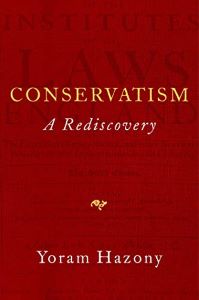Canada’s decades-long march toward socialism has become a mad dash to the finish line. Citing the high cost of living, and under pressure from an increasingly assertive NDP, the Trudeau Liberals have implemented, or are implementing, a slew of new entitlement programs ostensibly designed to help Canadians stay healthy and make ends meet. National pharmacare, national dental care, national daycare, and now a national school lunch program. Forget “The Great Reset”, Canada is in the process of being redesigned from top to bottom. But will Canadians be better off when the overhaul is complete?
To answer that question, one need only look at our country’s much-vaunted universal healthcare system.
What began as a series of modest provincial initiatives aimed at mitigating the cost of in-patient hospital care, Canada’s healthcare system is now a bloated bureaucracy, run by an army of apparatchiks focused more on preserving its monopoly than it is on providing actual healthcare.
It is telling that defenders of “public” care base their opposition to “private” on the belief that the availability of such an option would do irreparable harm to the current system. It seems not to have occurred to them that the only way that could happen would be if Canadians were so unhappy with the current system that they would flee toward private care if it were available. Unwilling to risk that happening, the government has erected its own virtual version of a Berlin Wall to prevent Canadians from voting with their feet in favour of healthcare freedom.
Education is another example of government restricting access to private alternatives, not because it believes that state-run schools are superior, but because it fears that expanding parental choice will lead to the collapse of the state-run system. As with healthcare, however, this would only happen if parents were so unhappy with their children’s schools that they would flee the current system if private alternatives were more readily available.
This bunker mentality can be traced, in the first instance, to the poor economics of state-run social programs. The objective of government intervention is to increase the availability of services while reducing, or eliminating altogether, the cost to users. This is a noble enough goal, but detaching consumers from the cost of their consumption also removes the natural throttle that prevents demand – and ultimately cost – from escalating out of control. Throw universality into the mix and you have the perfect storm… unlimited demand, limited supply, and a bewildered public trapped by economic realities it was fooled into thinking didn’t exist.
Supply is the Achilles heel of such initiatives, dictated by the limited amount of money available to pay for the services. One might think that this problem can be solved by simply increasing the pool of available money – i.e. raising taxes – but this just increases the financial burden the programs were intended to alleviate in the first place, leading to even more demand.
Make the rich pay their “fair share”? They already do. The top fifth of earners in Canada pay almost two-thirds of all income taxes while the bottom fifth pay only 0.6 percent. Those in the top 1 percent of income pay a whopping 17.9 percent of all income taxes.
There is always the middle class, but when was the last time you heard a politician running for office on a platform of taxing the middle class?
What about taxing “excess corporate profits”?
The myth of big corporations paying little or no tax is just that – a myth. All corporations pay tax regardless of how much profit they make. A corporation in Ontario, for instance, can pay as much as 40 cents in taxes, fees and premiums for every dollar it pays employees depending on its industry, this in addition to licensing fees, business permits, property taxes and other municipal levies.
“Excess” profits? The more profit a corporation makes, the more it pays in income tax, even at a fixed rate. What’s more, in addition to profits being taxed as corporate income, individual shareholders pay personal taxes on the portion they receive as a return on their investments. Finally, institutional shareholders such as pension funds – both private and public – rely on those profits to pay benefits to retirees, as does anyone who purchases mutual funds as savings vehicles.
Like calling for the rich to “pay their fair share,” demanding a special tax on "excess" profits is an idea that preys on the gullibility - and dare I say it, the envy - of ignorant, mostly young, voters.
That leaves borrowing as a source of the much-needed revenue, but that does not work in the long run either. Eventually the debt catches up with you. Consider that this year the federal government in Canada is paying more to service its (our) debt than it is paying for healthcare, or that the estimated cost of the new dental care initiative doubled just one year after the program’s introduction, and it hasn’t yet been fully implemented.
And because, deficit financing is, in reality, deferred taxation, the practice is not just unfair, it is a repudiation of the fundamental democratic principle of no taxation without representation.
So, after toying with all of the above options – and even adopting some of them, to a degree – the government is left with no choice but to impose direct control over all aspects of programs to keep costs manageable. In Canada’s healthcare system this manifests itself in rationed services and restricted pay for service providers, coupled with measures to ensure that a black market does not take root.
This is the fate that awaits each of the new programs announced by the Trudeau government since coming to office. It may take time, but like healthcare, national pharmacare, national dental care, and national daycare, are destined to become nationalized pharmacare, nationalized dental care, and nationalized daycare. School lunch is already nationalized as part of our nationalized education system.
But there is another, more insidious explanation for the relentless expansion of state-run social services, and that is the belief that free people cannot be trusted to look after themselves. Worse, that they cannot be trusted to help their fellow in times of need. It is this lack of faith in the good sense and decency of people that I find especially insufferable.
Insufferable, but also tragic. In addition to the fiscal consequences of excessive government intervention in society, we have now raised multiple generations, not just in Canada, but throughout western society, with no faith in themselves or their future, and who are increasingly dependent on the state for their well-being and, most frightening of all, their direction in life.
That, perhaps, is the greatest cost of our ongoing affair with socialist policies.
Dear Reader,
I don't charge for my content, but...
I do accept voluntary contributions from readers like you who appreciate insightful analysis and value intelligent debate. If you like what you are reading, please consider making a small one-time or monthly contribution by clicking here.




